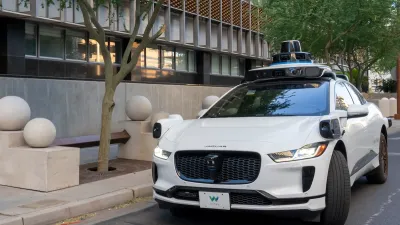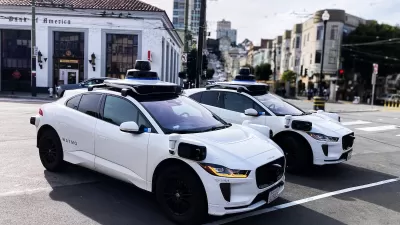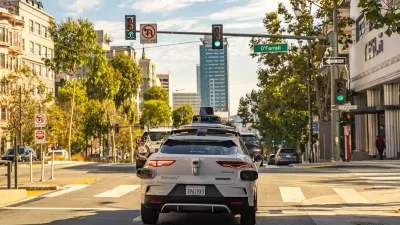There's a potential consequence from autonomous vehicles that has mostly gone unnoticed: municipal financial ruin.

Susan Crawford, Wired contributor, Harvard Law School professor, and author, is broadcasting a warning about the unintended consequences of an autonomous future after attending Meeting of the Minds in Ann Arbor, Michigan. There, Crawford attended a session on autonomous vehicles that included Nico Larco, director of the Urbanism Next Center at the University of Oregon. Larco is recidted with reminding attendees, and now you, of how many taxes and fees automobiles generate:
…many cities balance their budgets using money brought in by cars: gas taxes, vehicle registration fees, traffic tickets, and billions of dollars in parking revenue. But driverless cars don't need these things: Many will be electric, will never get a ticket, and can circle the block endlessly rather than park. Because these sources account for somewhere between 15 and 50 percent of city transportation revenue in America, as autonomous vehicles become more common, huge deficits are ahead.
While some cities are taking steps to create new revenue generating mechanisms that reflect the operation of self-driving cars and other forms of autonomous vehicles, many localities are limited by state control. "Michigan, for example, does not allow Detroit [pdf], a short drive away from that Ann Arbor ballroom, to make any rules about driverless cars," according to Crawford.
Crawford expects that already struggling cities (and communities within cities) will be particularly disadvantaged by the next era of transportation technology. Luckily, there are models for transportation funding that could provide at least a partial solution to the looming crisis. In the meantime, however, Crawford says, " we need to press Pause on aggressive plans to deploy driverless cars in cities across the United States."
FULL STORY: Autonomous Vehicles Might Drive Cities to Financial Ruin

Alabama: Trump Terminates Settlements for Black Communities Harmed By Raw Sewage
Trump deemed the landmark civil rights agreement “illegal DEI and environmental justice policy.”

Study: Maui’s Plan to Convert Vacation Rentals to Long-Term Housing Could Cause Nearly $1 Billion Economic Loss
The plan would reduce visitor accommodation by 25% resulting in 1,900 jobs lost.

Planetizen Federal Action Tracker
A weekly monitor of how Trump’s orders and actions are impacting planners and planning in America.

Wind Energy on the Rise Despite Federal Policy Reversal
The Trump administration is revoking federal support for renewable energy, but demand for new projects continues unabated.

Passengers Flock to Caltrain After Electrification
The new electric trains are running faster and more reliably, leading to strong ridership growth on the Bay Area rail system.

Texas Churches Rally Behind ‘Yes in God’s Back Yard’ Legislation
Religious leaders want the state to reduce zoning regulations to streamline leasing church-owned land to housing developers.
Urban Design for Planners 1: Software Tools
This six-course series explores essential urban design concepts using open source software and equips planners with the tools they need to participate fully in the urban design process.
Planning for Universal Design
Learn the tools for implementing Universal Design in planning regulations.
Caltrans
Smith Gee Studio
Institute for Housing and Urban Development Studies (IHS)
City of Grandview
Harvard GSD Executive Education
Toledo-Lucas County Plan Commissions
Salt Lake City
NYU Wagner Graduate School of Public Service





























